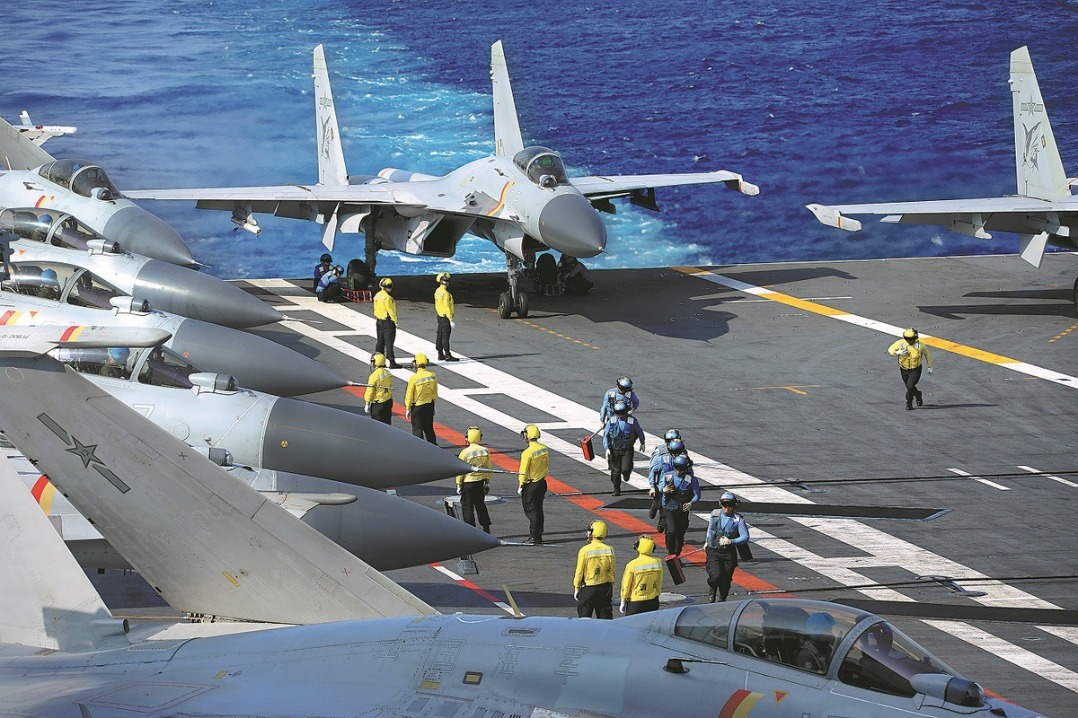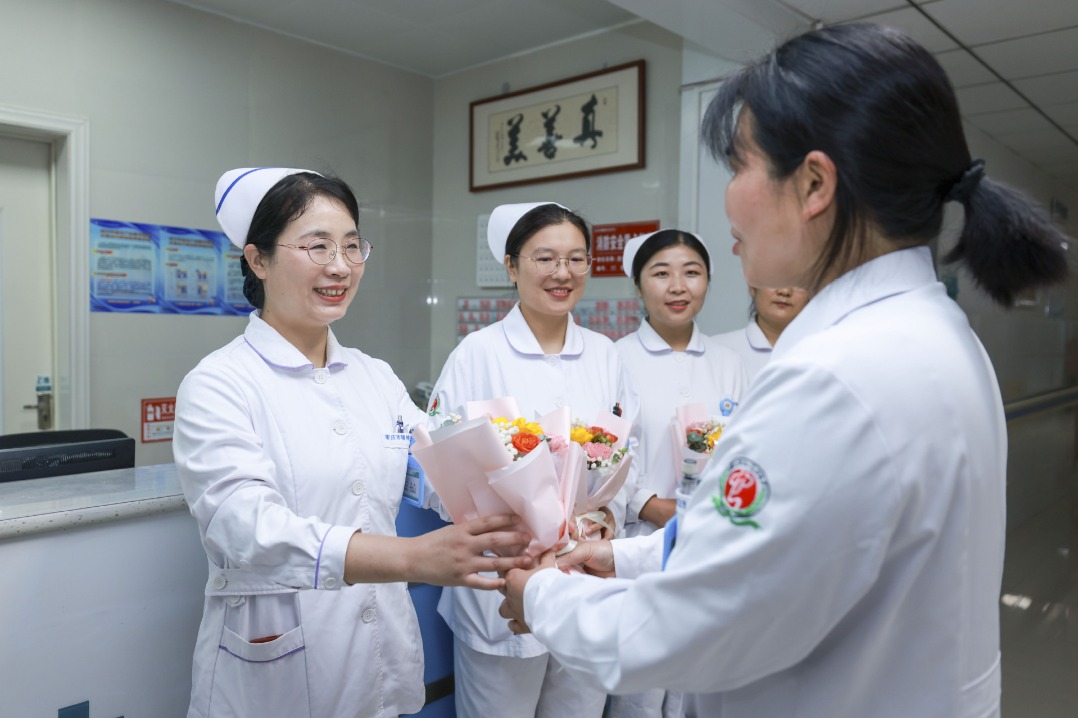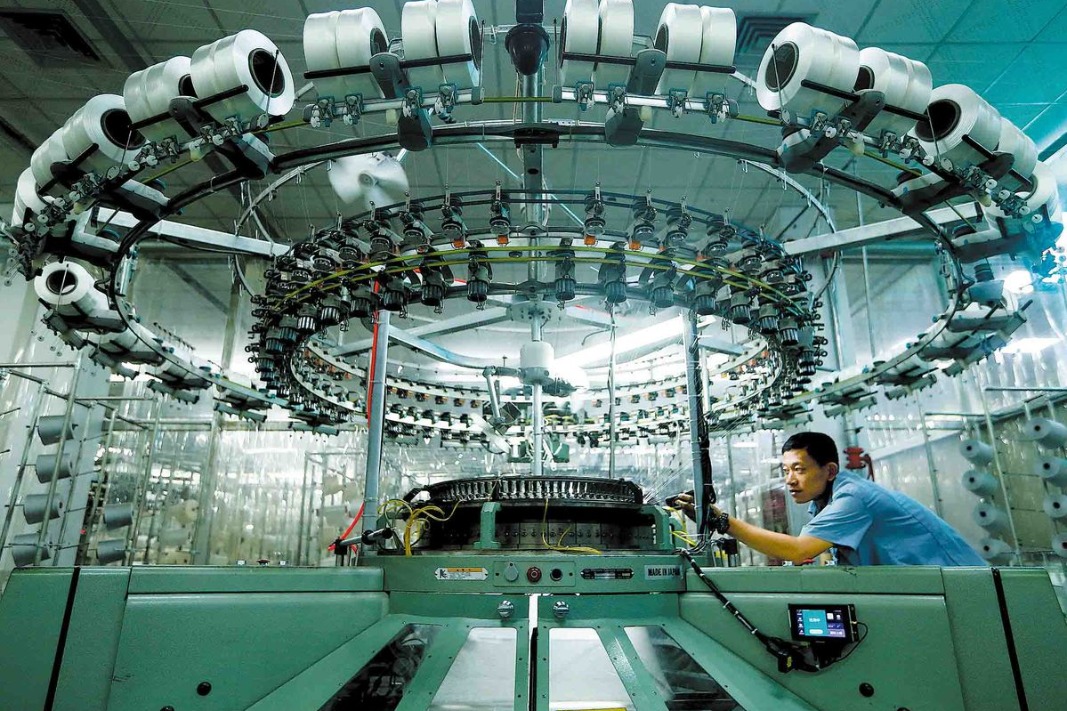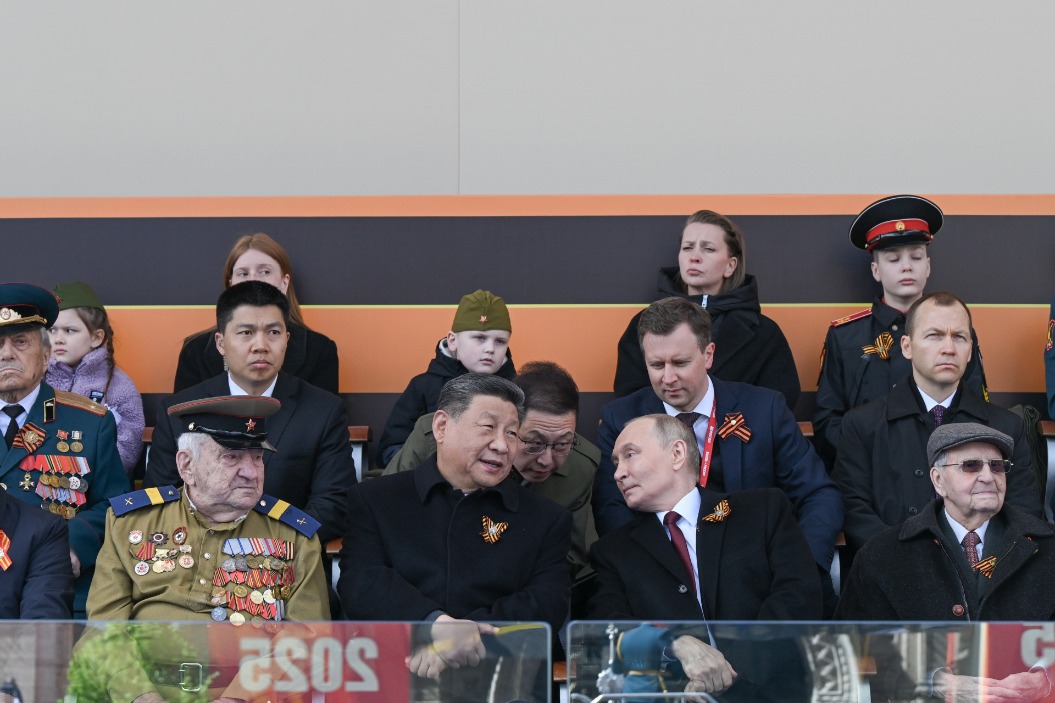Big step forward


China-Arab cooperation initiative on food security foundation for development of agricultural sector
On Dec 9, President Xi Jinping proposed eight major initiatives on China-Arab practical cooperation at the first China-Arab States Summit held in Riyadh, the capital of Saudi Arabia. Among these, the cooperation initiative on food security has captured attention worldwide. The successful holding of the FIFA World Cup in Qatar is thrusting the Arab region into the global spotlight; however, behind the glorious event is a harsh fact neglected by many — a large number of people in the Arab region face the risk of food insecurity. To ensure food security, the Arab world has a long way to go in capacity improvements.
According to the China-Arab cooperation initiative on food security, China is ready to help the Arab side enhance its food security and comprehensive agricultural production capacity. China will, together with the Arab side, build five joint laboratories of modern agriculture and carry out 50 demonstration projects in agricultural technology cooperation, and send 500 agricultural technology experts to the Arab countries to help increase grain yield and improve their ability to harvest and store grain and reduce grain losses, and improve agricultural productivity. China will establish a "green channel" for imports of quality agri-food products. The initiative may seem quite concise, but all the measures it contains are very specific and completely feasible.
China and the Arab states have a long-standing history in agricultural cooperation, with very close cooperation in agricultural trade, investment and technologies. Despite the adverse impact of the COVID-19 pandemic on global trade, Egypt exported $72 million worth of fresh oranges to China in 2021. Furthermore, making the most of its overseas agricultural technology demonstration centers, China has been promoting dry-land farming techniques in the Arab states, converting tracts of desert land into grassland or even fertile land for agriculture and thus greatly improving local production. The China-Arab cooperation initiative on food security is bound to play a positive role in improving food security for countries in the Arab world.
The Arab countries have enormous potential for improving their wheat yield. According to data from the United Nations Food and Agriculture Organization, the average wheat yield across the Arab world is estimated at 2.5 tons per hectare. Of that, Egypt and Saudi Arabia have a wheat yield of more than 6 tons per hectare. Looking at Egypt and Saudi Arabia's higher wheat yield, it is clear that wheat yield improvements across the Arab world are achievable by increasing water-saving irrigation, improving the quality of seeds and strengthening pest control.
Helping the Arab states enhance food security is a systemic project, which is, to a great extent, dependent on work outside the agricultural sector. The supporting measures are included in the eight major cooperation initiatives. For instance, according to the cooperation initiative on green innovation, China is willing to work with the Arab states to establish the China-Arab International Research Center on drought, desertification and land degradation and to use the China Fengyun Meteorological Satellite and the Beijing World Meteorological Center to support the Arab states in disaster prevention and mitigation. China is willing to establish the China-Arab Beidou Application Industry Promotion Center to provide high-quality location services for the Arab states in the fields of transportation, precision agriculture, search and rescue, among others. China will build a number of joint laboratories or research and development cooperation centers, and provide 300 advanced and applicable technologies to the Arab states. These specific measures are not only based on advanced technologies, but also have been proven effective in China's long-term exploration of agricultural production and economic practice.
Hunger and poverty are often two sides of the same coin, which are a result of resource endowment and capability differences caused by historical reasons, as well as lack of equal access to opportunities. The quality agri-food products from developing countries, in particular least developed countries, face great market access barriers in exports to developed countries due to both different technical standards and political interference, which has long been criticized under the World Trade Organization multilateral trading system. To this end, China has proposed establishing the "green channel" for the export of high-quality agri-food products from the Arab states to China and to give zero-tariff treatment to 98 percent of the products of the least developed Arab states.
Further opening-up of the Chinese market to the Arab world not only provides more open trading opportunities for the Arab states, but also optimizes the local agricultural value chain. Apparently, growing a hectare of oranges will generate more output than a hectare of wheat. By exporting fresh oranges, relevant countries could increase profits and trade surplus and thus purchase more wheat from the global food markets than they could have grown, therefore indirectly improving the food security of those countries. It has become a consensus that high-value agriculture benefits small farmers in developing nations, but it is based on more open and equitable orders for trade in agricultural products. Without market opening-up, high-value agriculture will instead erode the foundation of a developing country's food security.
Since the sudden onslaught of the COVID-19 pandemic, the severity of food insecurity has increased and become a hot issue globally with more people around the world affected by hunger. From the perspective of practical cooperation in the pursuit of solutions to the problem, the China-Arab joint action on food security undoubtedly serves as a great reference for the rest of the world. Cooperation on food security is, on the one hand, aimed at enhancing the comprehensive agricultural production capacity through concerted efforts, and on the other hand, aimed at providing open trade opportunities for more developing nations, thus making humanity's agricultural production more efficient and their economic relations more resilient. Without doubt, the China-Arab joint action on food security will benefit more and more people in the years to come.
The author is a researcher of the Rural Development Institute at the Chinese Academy of Social Sciences and secretary-general of the Chinese Society of Foreign Agricultural Economy. The author contributed this article to China Watch, a think tank powered by China Daily. The views do not necessarily reflect those of China Daily.
Contact the editor at editor@chinawatch.cn.

































